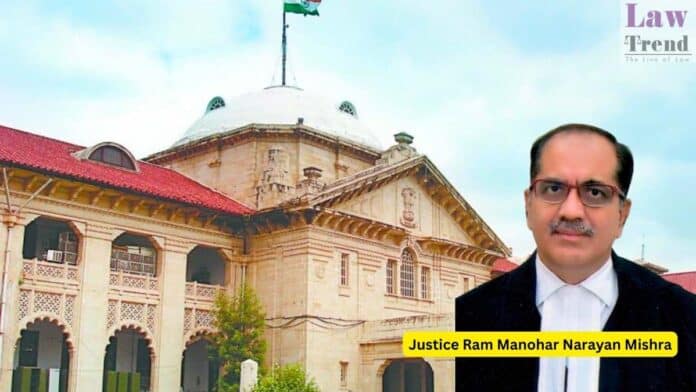In a significant ruling, the Allahabad High Court, presided over by Justice Ram Manohar Narayan Mishra, has remanded a case involving charges of kidnapping and sexual assault under the Indian Penal Code (IPC) and the Protection of Children from Sexual Offences (POCSO) Act back to the trial court for reconsideration of the discharge application. The
To Read More Please Subscribe to VIP Membership for Unlimited Access to All the Articles, Download Available Copies of Judgments/Order, Acess to Central/State Bare Acts, Advertisement Free Content, Access to More than 4000 Legal Drafts( Readymade Editable Formats of Suits, Petitions, Writs, Legal Notices, Divorce Petitions, 138 Notices, Bail Applications etc.) in Hindi and English.




